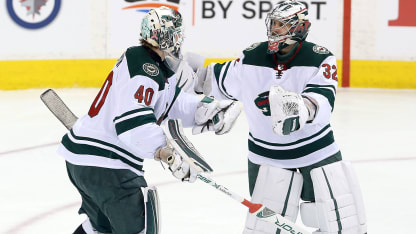All of which begs the question: what is the ideal workload for a playoff-bound goalie?
"It's hard to say what's that magic number," said Nashville Predators No. 1 Pekka Rinne, who played 61 games before making the 2016 Cup Final, 59 games when he won the Vezina Trophy last season and is on pace to play 58 this season. "Today's game, it's very demanding and fast. It goes with goalies, too. So, I think if you have the opportunity to get some rest, that's a great thing in the long term. Nowadays, if a team wants to be successful, they need two good goalies and they have to be able to share the load. And we have that here."
There may not be a perfect number. Minnesota Wild No. 1 Devan Dubnyk played 60 games last season after playing 65 and 67 in the two previous seasons and still seemed uncertain.
"It's probably good for the body and mind to be at that 60-game mark," he said. "I don't think I'm going to sit here and tell you that I felt way better in one scenario than I did the other."
Whatever the perfect number, it has clearly decreased over the past 15 years, especially in the playoffs, and with it the importance of a backup that can play regularly has gone up.
Although the number of goalies to play 70 games or more has decreased over the past five regular seasons (four) compared to the previous five full seasons (22), the link between a rested goaltender and winning the Cup goes back further. Since Brodeur won the 2003 Stanley Cup after playing 73 games for the New Jersey Devils, the average number of regular season starts for the Cup-winning goalie is 46.


















